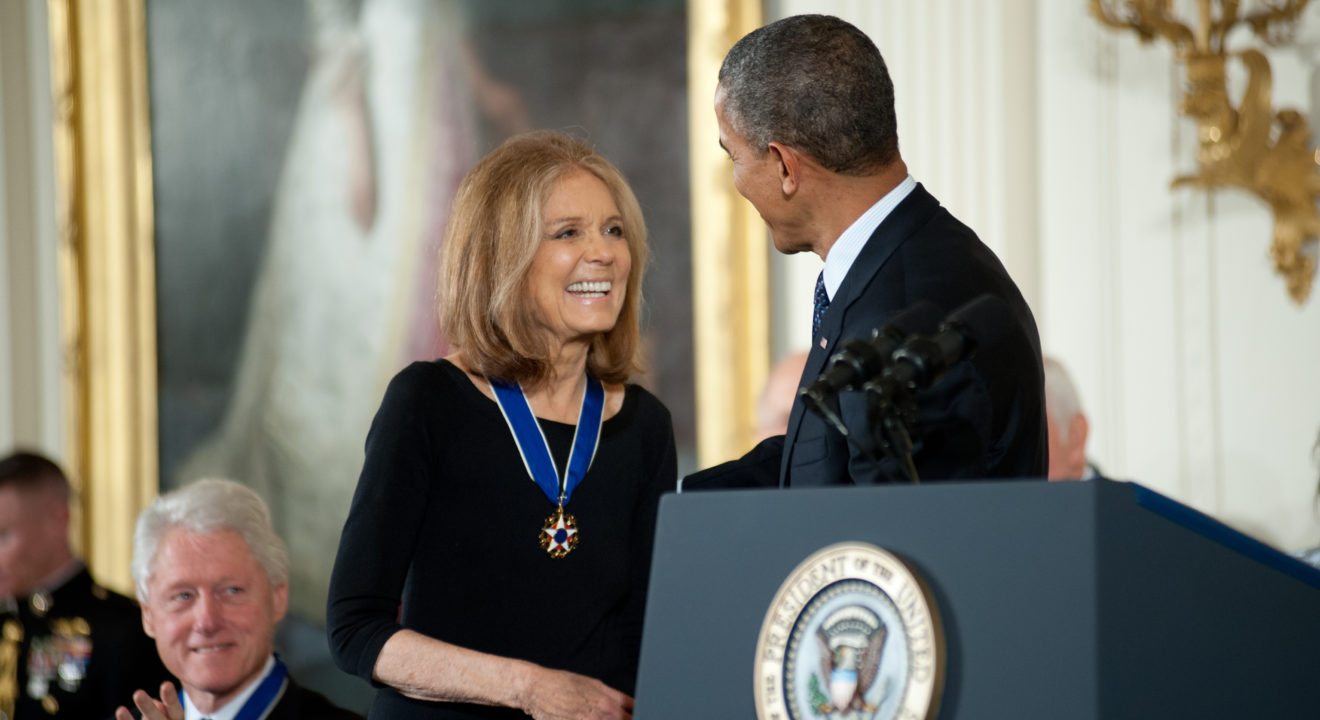May 14, 2017


She is an American feminist, journalist, and social and political activist. Gloria Marie Steinem was born on March 25, 1934 in Toledo, Ohio. The woman she is today took root when she was a young girl, living with her mother after her parents’ divorce.
Her mother struggled with mental illness and was unable to hold down a steady job. Steinem attributed this to the hostility towards working-women and believed that doctors’ apathy stemmed from anti-woman sentiments. These early understandings of women’s place in society were pivotal for her later understanding of social injustices.
In 1960, Steinem began her career a journalist at Help! magazine. Two years later she was freelancing for Esquire, and received her first serious assignment, to write an article about contraception. She highlighted the ways in which women are forced to choose between having a career and marriage.
One year later, Steinem was hired as Playboy Bunny to work at the New York City Playboy Club. Steinem gathered information to write “A Bunny’s Tale,” which detailed the exploitation of the bunnies and the sexual demands made of them that bordered on illegal. Because a photo of Steinem in her bunny costume was featured with the article, she had difficulty breaking away from the image it created, and was unable to land serious writing jobs.
In 1968, she went to work for the newly founded New York magazine, and was back to covering serious issues she was beginning to become known for. Steinem covered an abortion speak out held in the basement of a church, and attributes this meeting to the beginning of her life as an active feminist. She is attributed with coining the phrase “reproductive freedom,” meaning the freedom to have children or to not.
Steinem went on to co-found Ms. magazine in 1972. The first issue, which featured a restored Wonder Woman on the cover, sold out nationwide in eight days. Steinem and Dorothy Pitman Hughes founded the magazine because they didn’t believe there was anything for “women to read that was controlled by women.”
In 1978 Steinem wrote “If Men Could Menstruate” for Cosmopolitan, stating that if men menstruated, it would be a badge of honor, rather than the source of shame that it is for women, at the time she was writing and that idea is still widely believed today.
Steinem’s political activism took root in 1959 when she led a group of activists campaigning for the right of American’s to participate in the World Youth Festival, a Soviet sponsored event. Ten years later, Steinem was signing the “War Tax Protest” petition, vowing to refuse to pay taxes to protest United States involvement in the Vietnam War.
Steinem’s article “After Black Power, Female Liberation” made her a national feminist leader in 1969. She championed the Equal Rights Amendment, and co-founded the National Women’s Political Caucus with 300 women.
In 1984, Steinem was arrested with other activists for protesting apartheid outside of the South African embassy. Steinem criticized the United States for getting involved in the First Gulf War in 1991.
Steinem published an article about female genital mutilation in 1979, stating that it stemmed from the patriarchy and its need to control women’s bodies and sexuality. She is highly critical of the inaccessibility of feminist theory because academics “talk in a silly language that nobody can understand in order to be accepted.”
Steinem co-founded Choice USA in 1992, an organization that mobilizes and provides support for younger generations and lobbies for reproductive choice. Steinem remains staunchly anti-pornography, as it is based on unequal power and no mutuality. In more recent years, Steinem has spoken openly about her support of same-sex marriage and transgender rights.
Throughout her tenure as a cultural icon, Steinem has championed social, political, and feminist causes, and remains dedicated to them today.